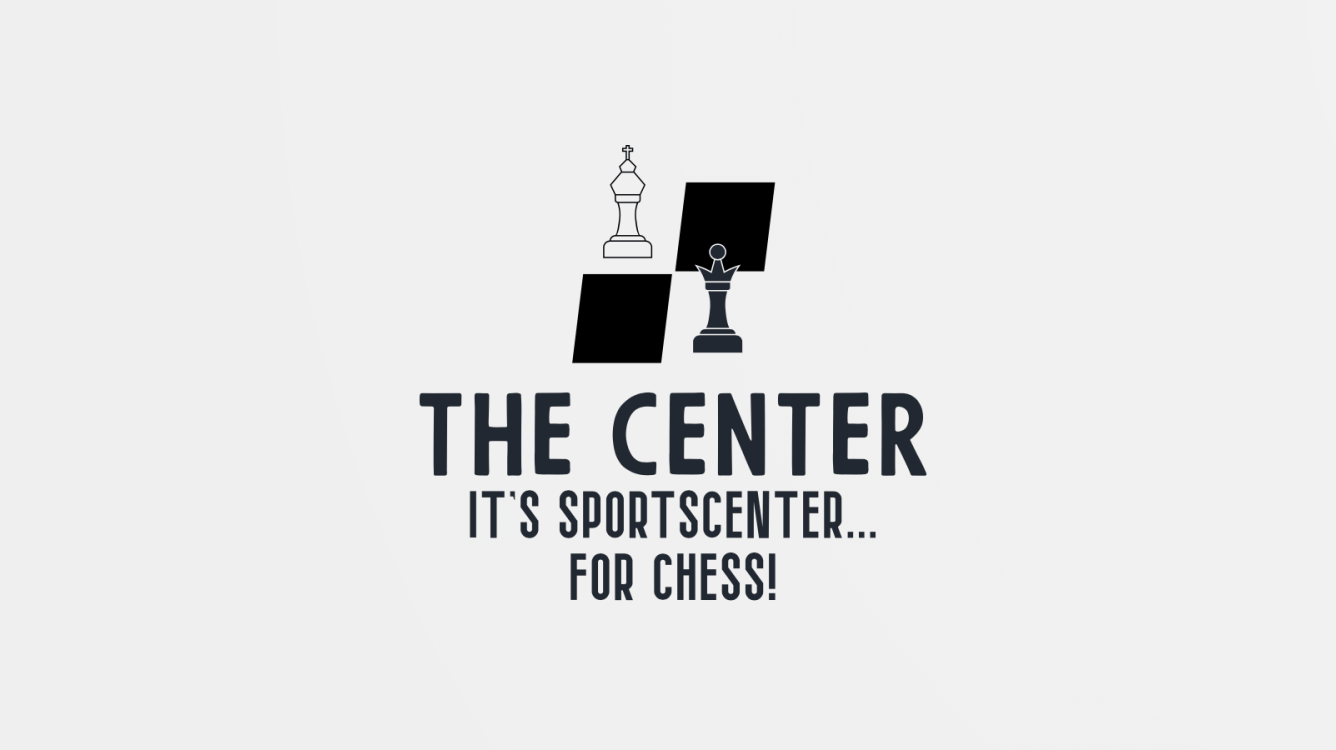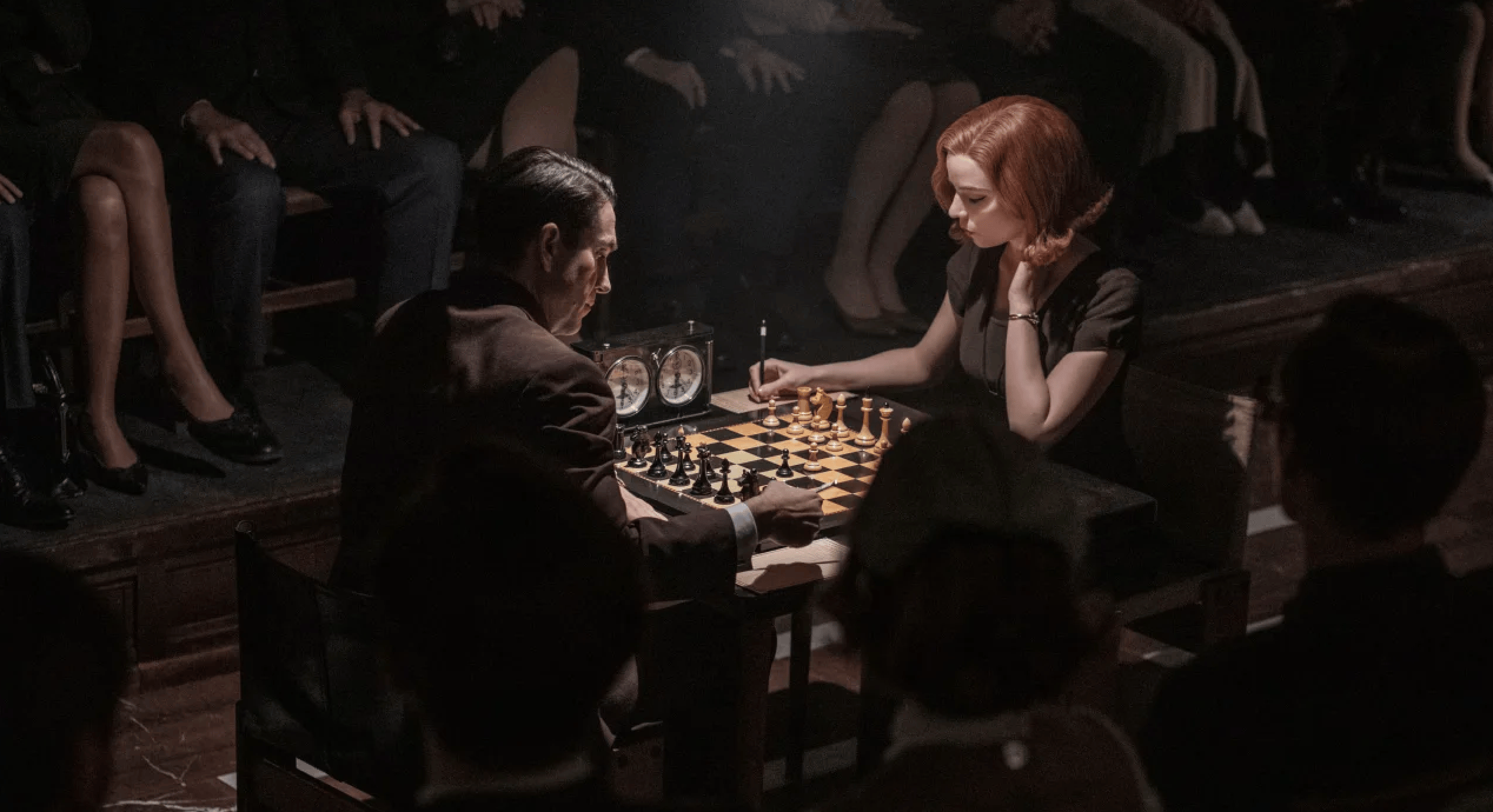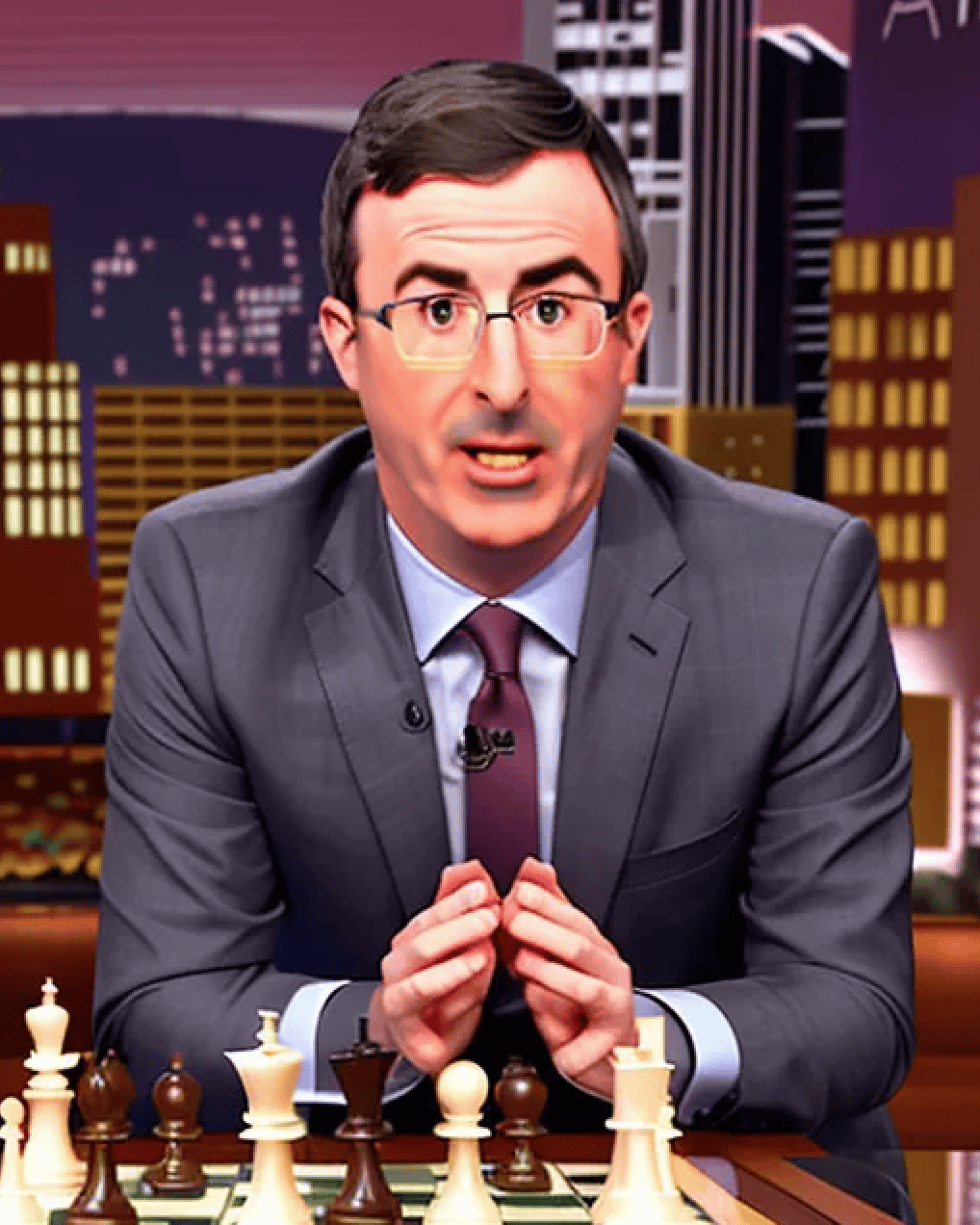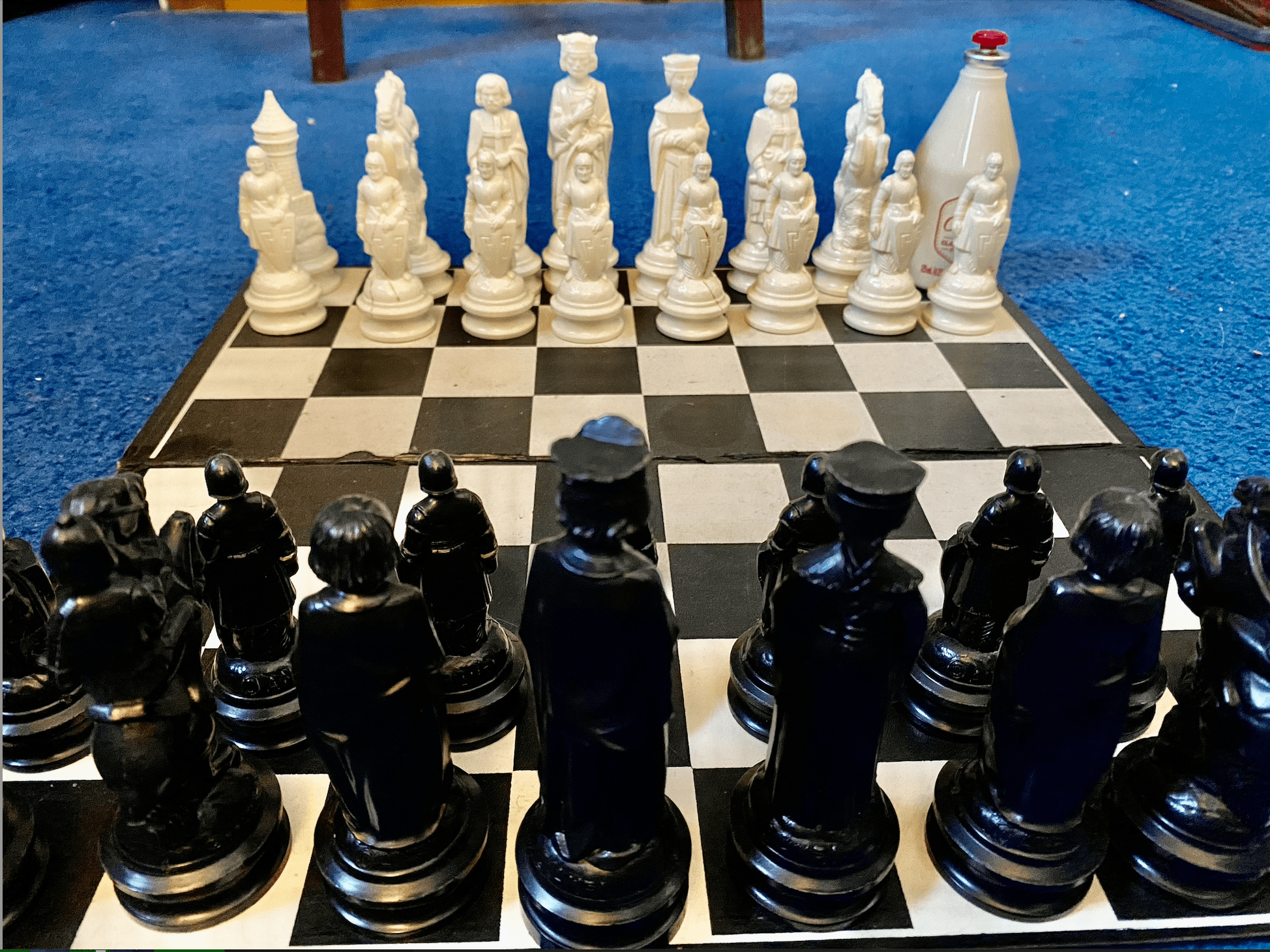
Sportscenter... For Chess! - A Pitch Document
In one of the most recent 'State of chess.com' addresses, Chief Chess Officer Danny Rensch was speaking about the upcoming slate of chess tournaments and the dense schedule it embodies. In a rather matter of fact manner he responded to a particular Q&A question by saying something along the lines of "if you are out there consuming all the chess coverage on Youtube than I seriously worry about your mental well-being." Now why would someone whose sole job it is to promote chess and the events on Chesscom Live shell out advice to viewers on scaling back their chess content intake?
For starters, players in recent years have celebrated but also have lamented the fact that there is more chess to be played now more than ever. In any given week several major tournaments can be running concurrently and it can be a lot to keep up with in order to feel like one is still staying within the realms of the chess circle. Not to mention, these chess broadcasts are looooong. Most programs are a minimum of four hours, I'd say the median hovers over five, but some can last up to six, seven, eight and even nine hours. In the case of Game 6 of the 2021 World Championship Match between Magnus Carlsen and Ian Nepomniachtchi, that single 136 move game (the longest world championship game ever) had a ten and a half hour broadcast! See for yourself, I'll wait...
Good. Now that you're caught up and watched all 10+ hours of that we can continue --
You compound that with all the other broadcasts that are taking place during the same point in time and there is quite literally not enough hours in a single day. Just as I'm writing this, there is currently the US Championship, Qatar Masters Open, The FIDE World Junior Rapid & Blitz as well as the I'm not a GM Speed Chess Championship; all on one day! On top of that, you sprinkle in weekly mainstays like Titled Tuesday, Arena Kings and Bullet Brawl, as well as The Collegiate Chess League and special events like Blitz Champs and FIDE's Intercontinental Online Championship for Prisoners, we start to understand what Danny was talking about in regards to one's mental well-being. Even the 2x speed button on Youtube wouldn't get you through all these extensive broadcasts.
Just because baseball introduced the pitch clock doesn't mean one can watch every single ball game out there and the same goes for chess. Even the Speed Chess Championships have 4 hour run times despite the low time controls. So what's the solution? Well, if only there were some sort of way to condense all this exciting chess action into one compact episode of television. To take all the high-flying pizzazz that OTB and online chess from FIDE, chess.com and the St. Louis Chess Club have to offer and bundle it into one jam-packed recap show.
Hmm???
What would that look like?
I wonder...

Well sweet heavens to Caïssa do I have a proposition for you!

That's where The Center comes in. Basically, it's SportsCenter... but for chess!
Alternate titles could be --
- Last Week Two Knights
- Adjournment
- Double Check
- The Skittles Room
- Post-Mortem
- The Score Sheet
1. The Why Now?
The 'Chess Boom'
The first chess boom took place during the 1972 World Chess Championship when the swaggering American Bobby Fischer took down Boris Spassky to become the 11th World Chess Champion. Back then, this match was reported extensively on the nightly news with live up to the minute coverage and made household names out of analysts like NM Bruce Pandolfini and Shelby Lyman.
Obviously not from the Fischer-Spassky match but nevertheless...
The coverage of the '72 World Championship was the highest rated public television program ever at the time. The 'Fischer Boom' inspired Americans to join chess clubs and play in tournaments all over the country but over the ensuing years chess's enthusiasm and notoriety, much like Fischer himself, faded into obscurity.
It's now fifty years after 'The Match of The Century' and chess has objectively reached its zenith in popularity. Once again it feels like must watch TV and that is in sole thanks to the 2020 award-winning Netflix miniseries The Queen's Gambit.

The show became a cultural phenomenon and put chess back on the map. A record 62 million households watched the series in its first month which led to an increase in purchases of chess sets that skyrocketed 87% in sales!
The thousand year old game has only grown in popularity since the show's release in 2020. Last December chess.com (which was just recently anointed by Time Magazine to be one of the 100 most influential companies) kept crashing because their website couldn't handle all the activity happening on their servers.

The chess.com app reached #1 in the IOS App Store and on January 20th the site had 10 million active members, with 31 million games being played on that day alone.
So sure, people are playing chess at a staggering rate but fans aren't just playing the immortal game, the real astonishing numbers are in how much these enthusiasts are watching it.

A lot of this viewership is impart to Youtube and live streaming channels like Twitch; where on certain days of the week you can find chess as the top gaming category being streamed, over the likes of other franchise juggernauts like Fortnight, League of Legends and whatever else the kiddies are into these days. The fact of the matter is, with no actual television rights, chess lives and is archived on Youtube and Twitch at only the low cost of a home internet plan. The 2022 Speed Chess Championship finale with Magnus Carlsen and Hikaru Nakamura had 200,000 viewers watching live at one point and currently sits at 1.3 million views. Ludwig's Mogul Chess Boxing Event (I emphasize the chess part) had over 300,000.
But setting aside the top-tier broadcasts, probably more important is the fact that Youtube is a great source for bite-sized educational material. Where as once a titled player cemented their contribution to chess through advancing theory and writing books, they now do so by streaming and providing content through game recaps, speed runs and opening videos. The insatiable appetite for chess content isn't through literature, magazines or even DVD's like it once was, it's through Youtube videos and viewership data supports this. Hikaru has over 2 million subscribers on his channel. Gotham Chess doubles that at over 4 million. Clips on ChessBase India have 60, 70, and 80(!!) million views just for one single video.



It may seem like the field is crowded and the competition to breakthrough is stiff but chess now demands around the clock mainstream coverage like it did back in 1972. If there were ever a time to create a chess related show it would be now, striking while the iron is so scolding hot.
But most would probably ask why should chess get its own Sportscenter type show? It's not even a sport, its just a board game.
2. Chess As A Sport

Did you know that the IOC (The International Olympic Committee) actually recognizes chess as a sport? It's true, and with the addition of competitive online chess the acknowledgement of it as an ever-growing E-Sport is even more undeniable. Even to those who's primary definition of sport is an element of competition/activity involving physical exertion, well this is the part of my pitch where I predictably steer you towards famed neuroscientist, author and MacArthur Genius Fellow Robert M. Sopalsky's famous published study which posits that --
A chess player can burn up to 6,000 calories a day while playing in a tournament, three times what an average person consumes in a day - Robert M. Sopalsky
It's not exactly men bludgeoning each other over the head chasing a ball but high level tournament chess is an exhausting competition that depends on energy/stamina as much as it does skill/knowledge. Any chess historian will tell you about the 1984 World Chess Championship and how it was called off after 5 months and 48 games because defending champion Anatoly Karpov lost 22 pounds and suffered from exhaustion. It's said that Karpov, simply put, just looked like death.

This is not an anomaly. Rustam Kasimdzhanov in 2004 lost 17 pounds during his World Championship victory. Science shows this is all a combination of breathing rates, blood pressure and muscle contractions. Therefor, Sapolsky suggests that GM's stress responses are on par with what elite athletes experience and their sustained elevated blood pressure (which lasts for hours) are in the range found in competitive marathon runners. One study even clocked one GM burning 560 calories playing two hours of OTB chess, roughly the equivalent to what Novak Djokovic will burn in an hour at the US Open. Ultimately, this all combines to average weight loss of 2 pounds a day, or 10-12 pounds over the course of a traditional 10-Round Swiss Tournament.
That's how the Grandmaster Diet has come into the chess zeitgeist. In the book Moonwalking With Einstein, when asked about advice on how to improve one's memory, the World Memory Champion simply responded by saying, "Get into shape." They refer to themselves as Mental Athletes and chess is rather similar in this regard. Bobby Fischer was the first to compliment chess with exercise, as he was a proponent of swimming, weight training, tennis, stretching and power walking. Just look at this photo of Viktor Korchnoi preparing for his 1981 match against Karpov --

To combat torrents of constant stress, lack of appetites and disturbed sleep patterns, players incorporate strict diets and fitness regiments to increase one's oxygen supply to the brain and therefor sustainable energy. In the long run, physical fitness and brain performance are inextricably tethered together, so it's no surprise that grandmasters are out here trying to look like soccer players.
3. Sport: The Ultimate Reality Show
It's clear that every network/streaming service is trying to get in on live sports. Amazon Prime now has the rights to Thursday Night Football, Youtube purchased NFL's Sunday Ticket, Apple TV+ airs MLB games and is the exclusive home to Major League Soccer. Channels like TBS and TNT cut scripted program entirely to pave the way for NBA and NHL programming.

Hollywood at one point had something like over 500 scripted shows on air but as of recently have drastically scaled back that number. Putting aside a pandemic, absurd spending sprees and two major union strikes, one of the other considerable ramifications of this shifting trend is because simply put, sports is drama at its most heightened state. People tune in to watch it live and this is where The Center will be such a beneficial contribution to the chess community.
The skeptic might ask, "Why can't I just peruse through the games each morning from the previous round?" Because yes, the PGN document will show you all the moves from a game but it doesn't tell the whole story now does it? The best game collections weave a narrative and provide context in-between their long lines of calculations but even still, that doesn't put you in that particular time and place. It's not exactly perceptible.
For instance, does the PGN capture this --
It may tell you the moves, but nowhere in the PGN does it tell you about one player's particular attire --
Or what about this infamous over-the-board blunder?? --
I believe in chess as a spectator sport, both in person and through the likes of live TV. The majority of chess clips on Youtube are indeed game recaps. Well, The Center is the ultimate chess clip compilation show but instead of one Youtube commentator going over a day's worth of games, The Center will provide edited footage of the day's most thrilling action. It will set the stage for what is about to happen, what did happen and what is to come. Because in sports, there are no scripts. There are no do-overs. Just a magnificent roller coaster wave of emotions from what is the ultimate unscripted drama. It deserves to be seen.
4. The Aesthetics
These days, it seems like everyone and their grandma has their own Youtube Channel. That may seem like hyperbole, except in this one particular case of whose ever Granny this is --
The Center is to take on the point of view of a one man talk show, sort of in the vein of Scott Van Pelt's Sportscenter or John Oliver's Last Week Tonight.


Now obviously these are lucrative shows with big-budget sets backed by major networks and The Center would have to take baby steps before they were upgrading to green screens and LED walls. However, one would be surprised at just how a little bit of lighting and set dressing can transform a dingy little basement into a full-fledged studio.

I imagine this is what The Center would initially mostly look like but instead of the way of high tech monitors and fanciful colors which seems to be the norm of most Twitch streams, chess is an old sophisticated game so the production design should resemble something more like a chess-themed English-style home office with a fireplace and smells of mahogany and leather bound books. Muted warm colors instead of disco lights and plenty of shelf space for the ultimate chess library to symbolize the centuries upon centuries of knowledge passed down from generation to generation.

To go along with the look of the show, there's the feel of it. On top of regular coverage of games and tournaments, you can also expect other segments that won't just limit The Center to strictly doing recaps and make it feel more like a full-fledged cable program.
Segments such as --
- Highlights
- Replays
- Tournament standings
- Live FIDE rankings
- Expert interviews
- Player/personality interviews
- Roundtable discussions
- Field pieces
- On location coverage
- Guest hosts
- Live call-ins
- Variants coverage
- Community coverage
- Weekly online arenas/Swiss tournaments
- Interactive puzzles for viewers
- Short/feature length documentaries (instead of 30 for 30 perhaps 64 for 64???)
- Top Ten Plays (Brilliancies)
- Not Top Ten (Blunders)
- Bad Lip Readings
- Chess Swag (How to Move Like a Boss)
- College Gameday for Collegiate Chess League
- Yearly Award Show (The Espy's)
Then there's the matter of equipment and budgeting. Here's a rudimentary catalogue of gear to get a small-scale production up and off the ground.
- Sony A6400 Camera - $848
- Rode Procaster Broadcast Microphone - $227
- Cloudlifter Microphone Preamp - $149
- Behringer Xenyx USB Mixer - $309
- Wirecast Control Surface - $665
- 3-Point Lighting Kit - $199
As you can see, the goal is to not just make The Center into a Twitch/Youtube show but more down the line evolve the brand into a chess institution in the vein of magazines such as New In Chess, This Week in Chess and Chess Life.
5. Why Me?
'Getting Personal'
Finally, there's the question of why me? Now a days, it's not just a matter of having a good idea but also what qualifies one particular artist to carry out and take ownership of such an idea. What unique perspective do I have on the game of chess that gives me the right to author/produce/host such a concept? Basically, I think there are three components to my upbringing that makes me uniquely qualified to shoulder this project.
- My life-long background in sports.
- My expertise in the field of film production and Audio/Visual.
- My penchant and passion for narrative storytelling.
A. Name a sport and I've probably played it at some point or another (and quite successfully to if I do say so myself). As an American boy, I grew up playing football, basketball and baseball. I evened wrestled for a time which came in handy after high school when getting recruited by colleges to play football fell through and I began training and competing in martial arts. I have a keen comprehension of the world of athletics, and after watching Sportscenter and listening to talk radio my entire life, I can use this instinctual understanding of sports and transpose those key attributes into the beguiling game of chess.
B. My collegiate career sought me seeking out (and still striving for) a career in film production. I have an MFA in film production so the perplexing technological summits of cameras, audio, editing and signal work flow are not lost on me. Currently, I work in the field of A/V where I project manage several large-scale events in glitzy ballrooms with hundreds upon hundreds of people in attendance. We abide by a run-of-show, hitting several cues for lighting, video and audio so the idea of a 'live stream' isn't something that will be overwhelming.
One of the more unique aspects of the John Campea Show is how self-sufficient he is. Along with hosting duties (something I'm apprehensive about doing myself but given the circumstances will be foisted upon me due to a lack of resources [although I do have experience in front of the camera as well as some so-so stand-up comedy escapades]) Campea mans the video switcher, soundboard and continually remains on-schedule with minimal technical blunders.
C. Finally, along with my MFA in film production, I also have a second MFA in screenwriting (I know, my family is so proud of me). Storytelling is something I'm passionate about. From Joseph Campbell to Dan Harmon I'm well-versed in the world of 'Deep Structure' and sports inherently lend itself to the dramatic form. My favorite movie is Raging Bull and Searching For Bobby Fischer is one of the rare gems to have a perfect 100% score on the Tomatometer.

I believe that every chess game and tournament follows a 3-Act Structure. On the surface level, there's the opening, middlegame and then the endgame but really it's not as simple as that. For example, indulge me in this hypothetical:
ACT ONE
Ordinary World - The players arrive at the playing hall. It's a tight race at the top of the table where many key competitors are jockeying for first.
Catalyst - Two contenders sit across from each other over-the-board. They shake hands, start the clock and make the first move. The player's original 'Ordinary World' is forever thrown out of balance and there is a clear and specific goal at the end of this journey. To win.
ACT TWO
First Obstacle - All preparation goes out the window when the protagonist's adversary throws a wrinkle into what we thought was contemporary opening theory. This will not be easy.
Midpoint - After a long think, where our hero calculates many variations, there is only one avenue they can go down. This is a decision you can not go back on. The fork in the road that will steer the game into one particular channel of uncharted waters. A balanced game with symmetrical pawn structures or a hyper imbalanced one with many chances for both players?
Second Obstacle - The co-leader is a clean pawn up in a winning endgame. Our protagonist needs to win to keep pace but they are 15 minutes down on the clock. It's also now a race against time! (A common screenwriting trope is if you want to increase the tension, add a ticking clock to the mix.)
ACT THREE
Resolution - In a time scramble, our protagonist squeaks out a slightly better endgame using an unfound tactic. 1-0!
Catharsis - It's not enough to just end a story but it's important to know what the characters have learned and where they are going. In this imagined example, our hero may have dug deep and found out about their most inward self, but tomorrow is the final round and the inevitable clash with the co-leader is imminent. The tale resets back to a new Ordinary World.
This may seem to stray off topic a bit but I think storytelling is vital to chess, The Center and helps the casual fan be invested in what is going on. It's the reason why a handful of these top players/personalities are so much more popular than most of their peers and how they have relied on branding to propel themselves past even the most talented of Grandmasters.
In Conclusion
All in all, chess has become my life. I too am part of The Queen's Gambit statistic named at the top of this pitch document. I learned the moves when I was younger from my late father but he clearly didn't know what he was doing. If he did he would have slapped my hand away every time I played 1.h4 2.Rh3. After watching the mini series I went digging through my dusty closet looking for his old chess set but it was held together by electrical tape and some of the pieces were broken or missing. That Christmas, my Mother got me a very nice new set. The next day, I created my chess.com account and the rest is history. I've been absorbed by the game on a daily basis ever since.



Fabiano Caruana jokingly acquiesces that if you want to get better at chess, well... then start a podcast. Selfishly, I think starting a Youtube show, not necessarily a podcast per se but instead where I watch and break down high level chess all day can't hurt my game (not to mention making my own hours and being my own boss) but also on a self-serving note, I want to see chess on TV and I know that The Center can be the first steps to making that happen. First Youtube, then ESPN and finally, chess in the Olympic games. Hell, if flag football can make it, why not chess?
So with that note, I'll leave you with this closing argument: My mission statement --
The Center's Mission Statement
To treat chess as the sport it is, and to serve its fans everywhere in a timely, comprehensive and entertaining manner.
Thanks for reading. This is a working document and it is a first draft. The plan is to make this my New Year's Resolution and get this thing off the ground by Summer 2024. I just figured that since I'm creating this pitch deck for myself, well... I might as well post it here and share it with you, the chess community and the audience this is geared towards in the first place. I'd love to hear of any feedback in the comments section with ideas to enhance the pitch or if some aspect of it needs more clarity. Until then, chess on.